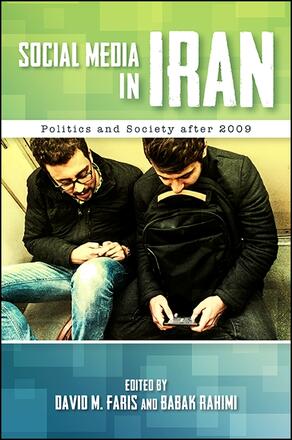
Social Media in Iran
Politics and Society after 2009
Alternative formats available from:
First comprehensive account of how the Internet has impacted life in Iran.
Description
Social Media in Iran is the first book to tell the complex story of how and why the Iranian people—including women, homosexuals, dissidents, artists, and even state actors—use social media technology, and in doing so create a contentious environment wherein new identities and realities are constructed. Drawing together emerging and established scholars in communication, culture, and media studies, this volume considers the role of social media in Iranian society, particularly the time during and after the controversial 2009 presidential election, a watershed moment in the postrevolutionary history of Iran. While regional specialists may find studies on specific themes useful, the aim of this volume is to provide broad narratives of actor-based conceptions of media technology, an approach that focuses on the experiential and social networking processes of digital practices in the information era extended beyond cultural specificities. Students and scholars of regional and media studies will find this volume rich with empirical and theoretical insights on the subject of how technologies shape political and everyday life.
David M. Faris is Chair of the Department of Political Science and Public Administration at Roosevelt University and the author of Dissent and Revolution in a Digital Age: Social Media, Blogging and Activism in Egypt. Babak Rahimi is Associate Professor of Communication, Culture, and Religion at the University of California, San Diego. He is the author of Theater State and the Formation of Early Modern Public Sphere in Iran: Studies on Safavid Muharram Rituals, 1590–1641 CE.
Reviews
"As an introduction to contemporary Iranian sociotechnical movements, the volume is an excellent guide for even novice scholars hoping to gain a better understanding of the region. " — CHOICE
"…will prove a welcome and significant acquisition for academic library Middle Eastern Studies and Media Studies collections in general, and Contemporary Iranian Studies supplement reading lists in particular. " — Midwest Book Review